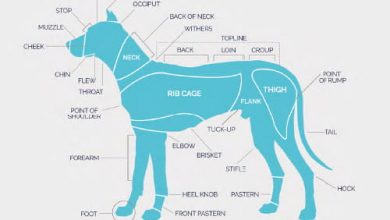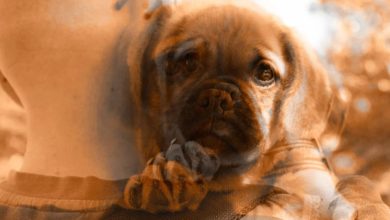What Happens If My Dog Eats A Cockroach

1. Introduction
Dogs are curious creatures, and they often get into things that they shouldn’t. One of the most common things that a dog may get into is a cockroach. If your dog has eaten a cockroach, it is important to understand the potential risks and what to do in order to ensure your pet’s safety. In this article, we will discuss what happens if your dog eats a cockroach and how to tell if your dog has eaten one. We will also provide prevention tips for keeping dogs from eating cockroaches, as well as the potential benefits and risks associated with pets eating insects.
2. What is a Cockroach?
A cockroach is an insect that belongs to the order Blattodea. There are over 4,000 species of cockroaches around the world, but only about 30 species are considered pests in homes and other structures. Cockroaches are typically brown or black in color and range in size from 1/4 inch to 2 inches long. They can be found in moist areas such as kitchens, bathrooms, basements, and garages.
3. Are Cockroaches Dangerous to Dogs?
Cockroaches can pose a health risk to both humans and animals if ingested or inhaled. Ingesting cockroaches can cause gastrointestinal distress such as vomiting, diarrhea, and abdominal pain in dogs. In addition, cockroaches can carry bacteria on their bodies which can cause infections if ingested by a dog.
4. Potential Symptoms of Eating a Cockroach
If your dog has eaten a cockroach, there are several potential symptoms that you should look out for:
• Vomiting
• Diarrhea
• Abdominal pain
• Lethargy
• Loss of appetite
• Increased thirst
• Drooling
• Bad breath
• Changes in behavior
5. How to Tell If Your Dog Has Eaten a Cockroach
It can be difficult to tell if your dog has eaten a cockroach because many of the potential symptoms could be caused by other illnesses or conditions. However, if you notice any of the above-mentioned symptoms after your dog has been near an area where there are known to be cockroaches, it is possible that they have ingested one. If you suspect that your dog has eaten a cockroach, it is important to take them to the veterinarian right away for diagnosis and treatment.
6. What To Do If Your Dog Has Eaten A Cockroach
If you suspect that your dog has eaten a cockroach, it is important to take them to the vet right away for diagnosis and treatment. The vet may recommend giving your pet activated charcoal or other medications depending on the severity of the situation. The vet may also recommend additional tests such as bloodwork or x-rays in order to determine if there are any other underlying health issues present that could be causing the symptoms or if further treatment is necessary.
7. Prevention Tips for Keeping Dogs from Eating Cockroaches
In order to prevent your dog from eating cockroaches, it is important to keep all areas of your home clean and free from food debris and moisture which can attract these pests. Additionally, it is important to inspect any items brought into the home for signs of infestation before bringing them inside as well as regularly checking cracks and crevices for signs of an infestation. Additionally, sealing up any entry points such as cracks or holes can help keep out these pests as well as regular vacuuming and dusting around areas where they may be living or hiding such as behind appliances or furniture.
8. The Benefits of Pets Eating Insects
While it may seem strange at first thought, there are actually some benefits associated with pets eating insects such as cockroaches! These insects contain essential nutrients such as protein which can help keep pets healthy when consumed in moderation as part of their diet. Additionally, consuming insects can help reduce stress levels in cats which can help keep them happier overall!
< h2 >9 . Risks Associated with Pets Eating Insects
While there are some potential benefits associated with pets eating insects such as cockroaches, there are also some risks associated with this behavior which include: ingestion of toxins from pesticides used on the insects; potential allergic reactions; ingestion of parasites which can cause serious health problems; increased risk of digestive issues such as vomiting or diarrhea; increased risk of infection due to bacteria present on the insect’s body; and potential choking hazards due to small parts found on certain insects like legs or wings which could become lodged in the throat or esophagus if not chewed properly before swallowing . Therefore it is important to always monitor your pet when they are consuming insects so that you can intervene quickly if necessary!
< h2 >10 . Conclusion
In conclusion, while there may be some potential benefits associated with pets eating insects like cockroaches, it is important to understand the potential risks involved so that you can take steps to ensure your pet’s safety! If you suspect that your pet has eaten a cockroach it is important to take them immediately for diagnosis and treatment so that any further complications can be avoided! Additionally following prevention tips such as keeping areas clean and free from food debris and moisture can help reduce the chances of an infestation occurring in the first place!
< h2 >11 . Sources
1 . “What Happens When My Dog Eats A Cockroach?” Veterinary Partner , www . veterinarypartner . com/Content . plx?P=A&S=0&C=0&A=1715 . Accessed 7 May 2021 .
2 . “Cockroach Control.” National Pesticide Information Center , npic . oregonstate . edu/pest/cockroach/control/. Accessed 7 May 2021 .
3 . “The Benefits Of Insects As Pet Food.” PetMD , www . petmd . com/dog/nutrition/evr_dg_the_benefits_of_insects_as_pet_food?page=show#:~:text=Insects%20are%20rich%20in%20protein , Accessed 7 May 2021




